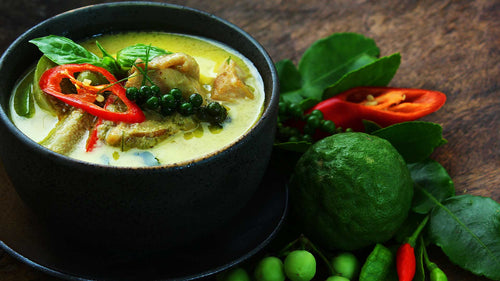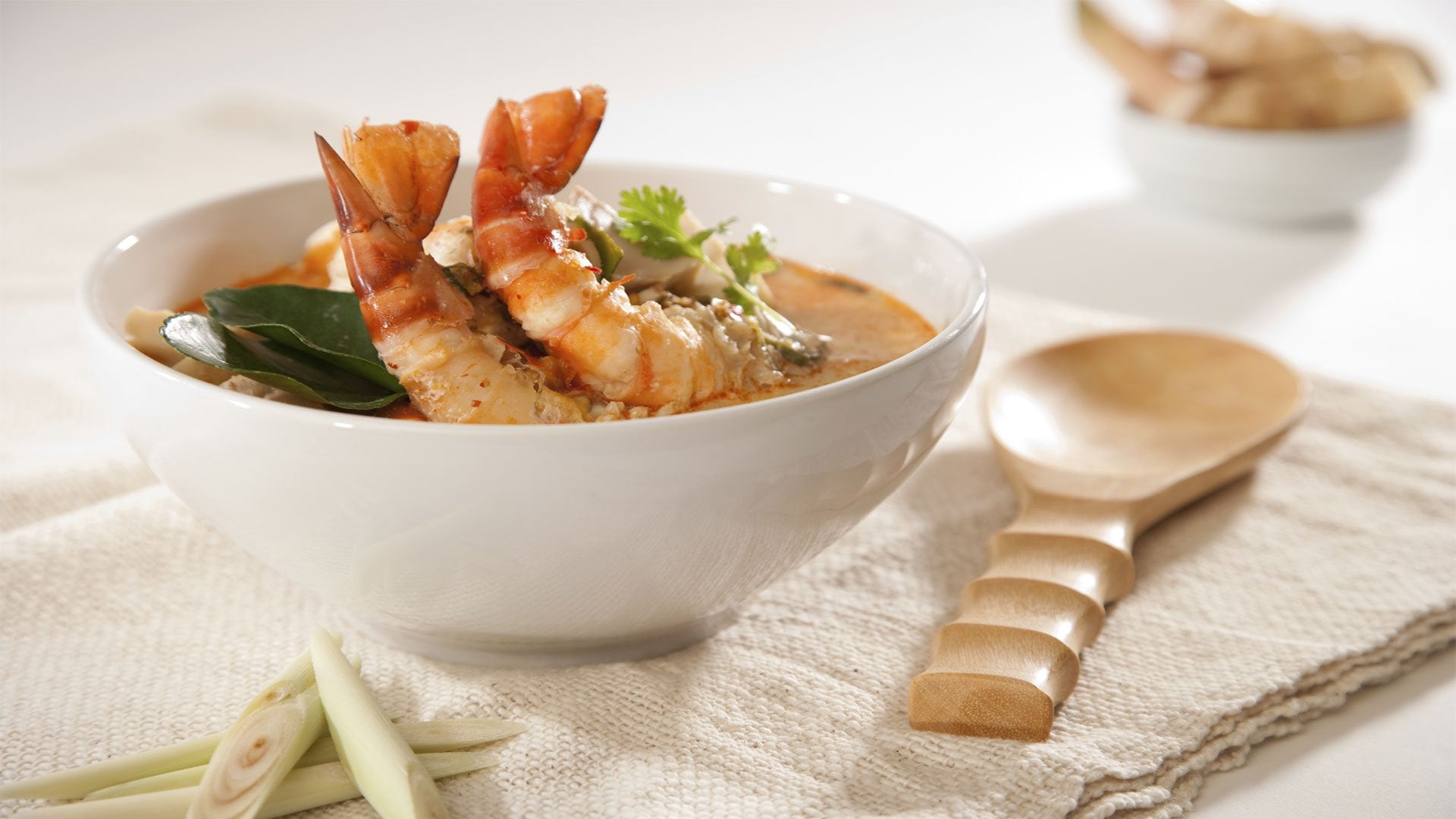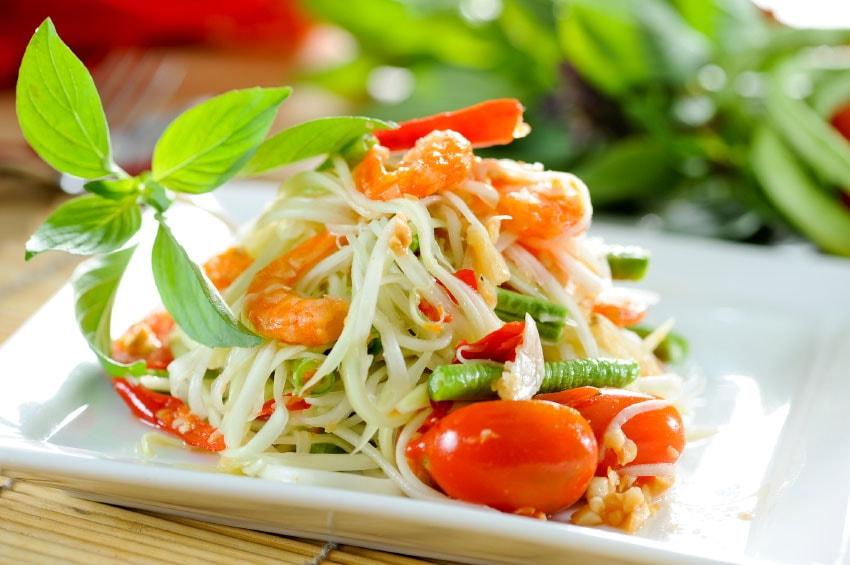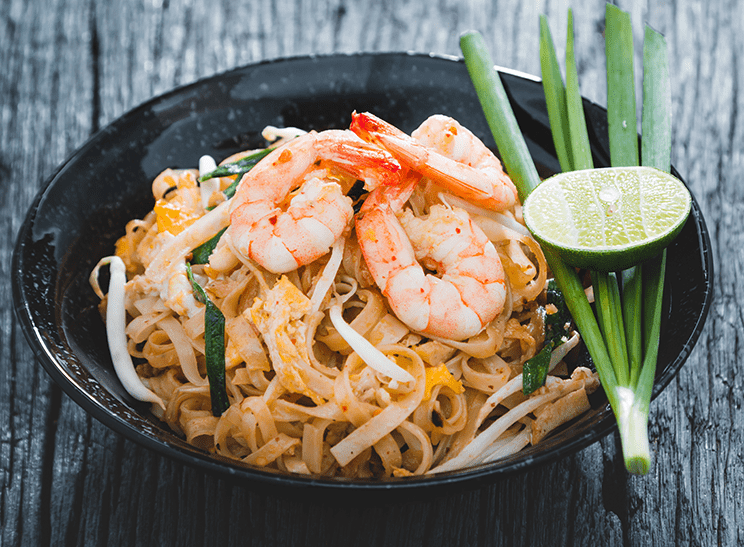« previous page of this article
Turmeric, for example, has anti-inflammatory and antioxidant properties, both of these qualities are known to play a part in preventing the development of cancer.
Lemongrass, a lovely, fragrant, lemony herb is used in Chinese medicine in the treatment of colds and flu-like bugs. It is also known to help maintain good digestion.
Galangal is a variant of ginger and, as such, shares many of its properties. Galangal is particularly renowned for its effectiveness in relieving digestive problems and gastric disorders. It is also reputed to assist in the reduction of pain and stiffness caused by arthritis.
Chillies, cayenne in particular, have recently come to the attention of western researchers. Indications are that chillies and their extracts may be beneficial in maintaining a healthy cardio-vascular system, and in supporting the body’s ability to produce insulin. Some researchers have also found positive impact on certain skin conditions, and on digestion. Another, quite unusual, benefit of chillies is that they are known to combat insomnia, so your delicious Thai meal will also help you to sleep soundly at night!
Coriander is well known throughout Asia and is one of the most vital ingredients common to most cuisines from that region. Like many of the other herbs used in Thai cooking, it is known to aid good digestion, and is reputed to encourage a strong immune system, thus helping to defend against common minor illnesses.
Coconut milk is believed to assist in the lowering of LDL, a form of cholesterol which is harmful at high levels. It also helps to raise levels of more desirable fatty substances that the body needs in order to function optimally. Like coriander, coconut milk is known for its immunity boosting properties. Some of its components are also known to inhibit some of the effects of aging.
Kaffir Lime Leaves have antioxidant properties like several of the ingredients we have mentioned already. Kaffir is said to purify the blood and assist digestion, while promoting dental and oral health. Kaffir is one of the main flavours used in Thai cuisine.
But there is more to the healthy eating aspect of the Thai diet than the individual properties of its ingredients: one should not underestimate the importance of the freshness of Thai herbs. Where many Asian cooking styles use a lot of dried spices and extracts, Thai cooking tends to make use of fresh herbs in their natural, whole state rather than extracts. Whole foods of any kind are now widely recognised, even in the west, as being the healthier option, and should be preferred over processed or powdered derivatives.
The popularity of salads, fish and seafood mean that there are plenty of alternatives to red meat. That said, body builders and macho traditionalists who don’t consider a meal to be a real meal unless it contains a decent helping of red meat would find that a Thai menu caters for them too.
As with all cuisines, there are some things best enjoyed in moderation. If one ate only dishes rich in coconut milk, for example, then one might reasonably expect to add a few inches to one’s waistline. Similarly, someone on a diet may decide to opt for plain or fragrant, rather than fried, rice dishes in order to keep the calories down, but the great thing about Thai cuisine is that meals are generally composed with all elements very well balanced, so it is most likely that a full meal would contain all these marvellous ingredients in just the right proportions.
Few dietary experts would dispute that the Thai diet is one of the most intrinsically healthy in the world.









Leave a comment